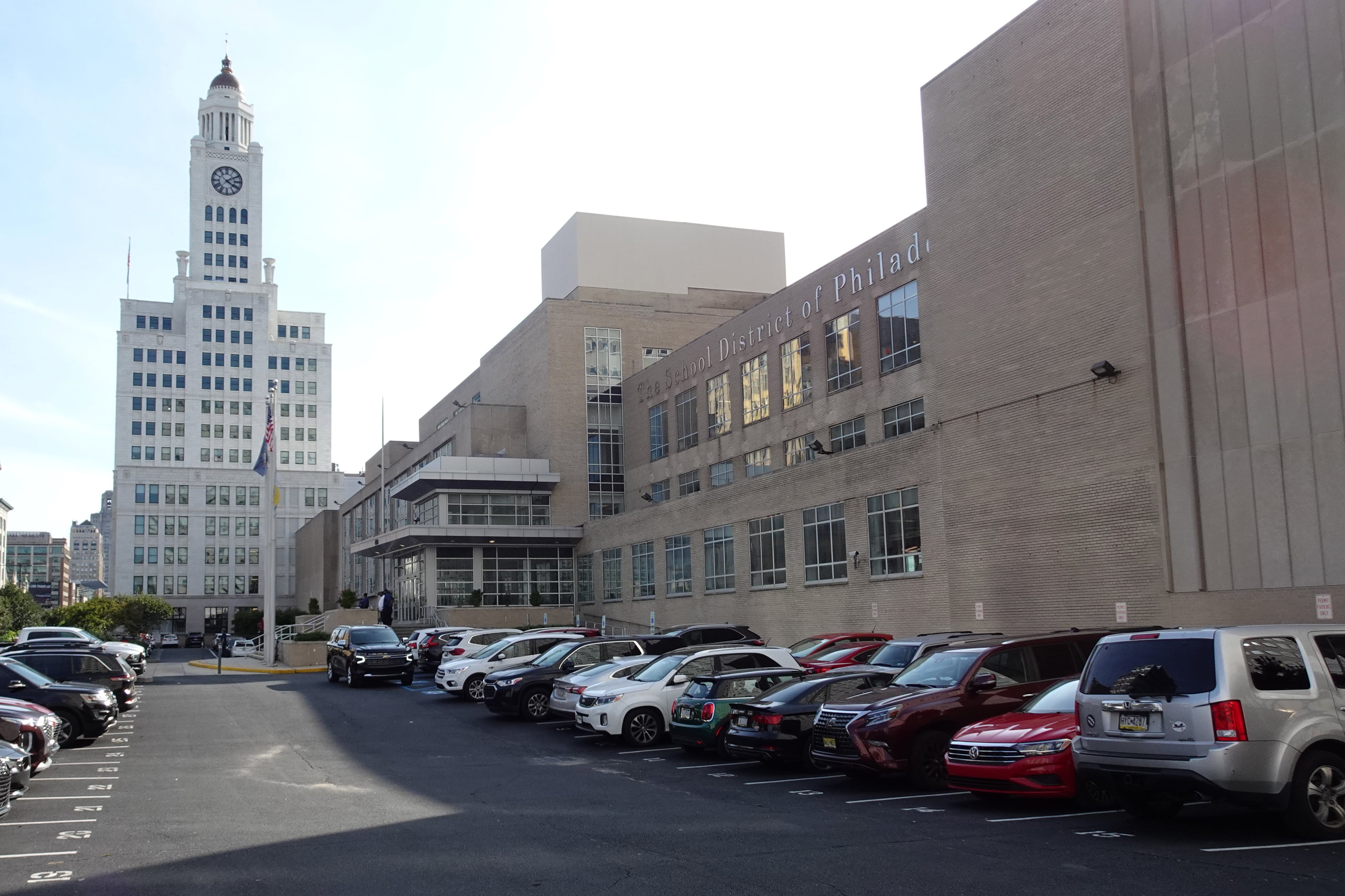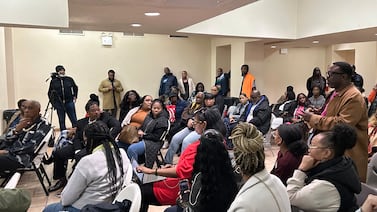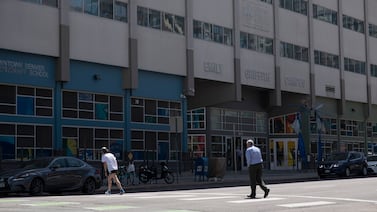Sign up for Chalkbeat Philadelphia’s free newsletter to keep up with the city’s public school system.
The Philadelphia Board of Education adopted a preliminary $4.5 billion budget Thursday for fiscal year 2025 that shows its yearly expenditures will outpace revenue but will be balanced with reserves.
The “lump sum” budget presented by Chief Financial Officer Michael Herbstman does not include any significant cuts at the school level. A five-year projection shows escalating shortfalls each year, starting with nearly $88 million in 2025 and ballooning to $745 million in 2029.
Those projections do not take into account any extra money coming to the city as a result of last year’s Commonwealth Court decision, which declared Pennsylvania’s current school funding system unconstitutional.
“Even as we face declining revenues, we are committed to doing everything we can to protect the classroom at all costs,” said Herbstman in presenting the numbers to board members.
Even though yearly revenue is falling behind expenditures, the district will end 2025 with a fund balance of $695 million due to the reserves, according to Herbstman’s numbers. Those reserves include what’s left of federal pandemic aid and other sources.
The budget does include proposed increases in education funding from Gov. Josh Shapiro and Mayor Cherelle Parker. Shapiro has proposed increasing state aid to education by $1.4 billion, about $240 million of which would come to Philadelphia. He called it the first downpayment on bringing the state’s school funding into constitutional compliance.
Parker has proposed a $100 million increase in the city’s contribution to the schools, while reiterating that the state should bear most of the burden of making education funding fair and adequate across the state.
Superintendent Tony Watlington made the case during the meeting that the district has made good use of additional funds, citing the results of a national study showing that Philadelphia recovered to pre-pandemic achievement levels faster than any other urban district. He noted that the state’s Basic Education Funding Commission determined that Philadelphia is underfunded by at least $1.4 billion annually.
He said that he planned to pilot in 15 schools an extended day and year-round school, which Parker proposed during the mayoral campaign. He did not put a price tag on the initiative.
He also said he planned to relaunch Parent University, which offers classes so parents can help their children with schoolwork, and start a major recruitment effort to get more Black and Latino male teachers.
The board approved the preliminary budget by a unanimous 8-0 vote. Board member Leticia Egea-Hinton was absent.
The district’s final budget must be approved by both the city, while the state’s contribution to education is still a matter of negotiation as it finalizes its spending plan. The board will hold a hearing on April 25, and city council will hear testimony on April 30. The city approves its final budget on May 30 and the state on June 30.
Dale Mezzacappa is a senior writer for Chalkbeat Philadelphia, where she covers K-12 schools and early childhood education in Philadelphia. Contact Dale at dmezzacappa@chalkbeat.org.






